The first official call for the decriminalization of psychedelic plants and fungi in Canada is set to be heard in the House of Commons later this year.
An electronic petition initiated by psychedelic practitioner Trevor Millar on April 16 has gotten the public support and political backing required to be heard in the House of Commons after it closes from further signatures on Aug. 14.
Petition e-2534 will be presented to the House by MP Paul Manly, who won a seat for the Green Party in the Nanaimo-Ladysmith by-election last May and was re-elected in October.
Sacramental and medicinal plants have been used for millennia by Indigenous cultures for healing, Manly told Mugglehead in a written statement.
“Criminalizing Indigenous people’s use of traditional medicines with psychoactive ingredients was part of the cultural genocide that took place during colonization,” he said.
Manly also mentioned the urgent need to address the opioid and mental health crises facing Canadians. Sacramental and medicinal plants containing psychoactive agents is a promising area of research for potential treatments, he said.
Manly cited a rapidly growing body of research showing that psychedelics can be safely used to treat people suffering from addictions, common mental health issues and end of life care.
Read more: Psychedelic conference weighs treatment efficacy against mainstream viability
For instance, psilocybin — the main psychoactive ingredient found in popular varieties of magic mushrooms — has been popping up in recent years as an effective therapy for treatment-resistant depression.
The U.S. Food and Drug Administration has acknowledged the potential for these treatments, designating some with “breakthrough therapy” status to expedite their development.
Highlighting that some psychedelics are already on their way to liberalization, Manly pointed to other North American jurisdictions that have decriminalized. Denver, Colorado, became the first U.S. city to decriminalize magic mushrooms following a narrow vote last May. In Oregon, acccording to the Yes on IP 34 website, the group has 130,691 out of a required 145,000 signatures required for the legalization of psilocybin therapy to appear on the federal ballot in November’s election.
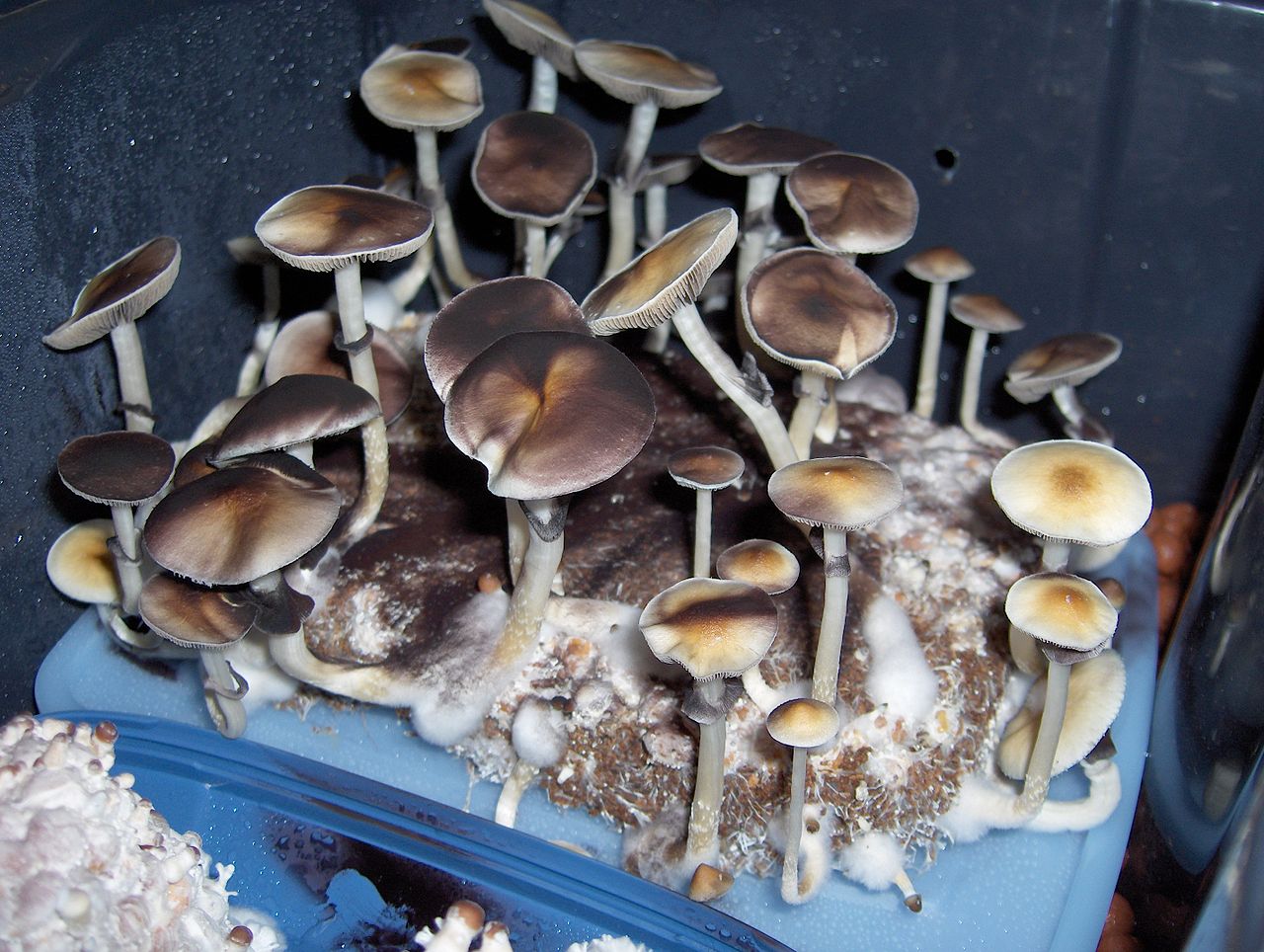
Psilocybe cubensis are one of the most popular variety of magic mushroom and can be grown indoors with relative ease. Creative commons photo by Ilkka S. Itäheima
‘Audacious’ goal of 500,000 signatures, if met, will send a clear message to government
Much of Millar’s therapeutic work has centred on ibogaine, a psychoactive substance derived from the root bark of a shrub native to West Africa.
Ibogaine has been shown to be an effective treatment for substance use disorders, but some doctors have said it’s too toxic to be adopted as a mainstream medical treatment. The substance has a prescription-only status in Canada and is listed as a Schedule I drug in the U.S.
While Millar has his name stamped on the petition as its initiator, he says he wasn’t actually brought on board until late in the process.
Last year, Vancouver city Coun. Melissa DeGenova called for a crackdown on illegal drugs, naming mushrooms along with concerns of money-laundering and international drug gangs. DeGenova’s concerns came after well-known weed activist Dana Larsen started selling mushroom microdoses online.
Millar was part of the group that set up decriminalizenature.ca, which allowed people at the time to send a pre-formatted letter to city council against DeGenova’s motion. Around 750 people sent one of those letters in, Millar said, which contributed to the motion being shot down in a six-to-two vote.
It was through his involvement there, that he was brought on to work on the current petition, which had been in the works by Chris Bennett from The Urban Shaman in Vancouver and some of his friends.
“They had already established the relationship with Paul Manly and they kind of brought me in at the 11th hour to quarterback it going public and to help with some final edits,” Millar said.
The small team got the petition to a point where they and Manly were happy with it, and then Millar worked on getting some big names to sponsor it.
He got co-signs from colleagues including ethnopharmacologist Dennis McKenna and prominent ethnobotanist Wade Davis.
When the petition launched two weeks ago, it got the 500 signatures required to be read in the House within the first 12 hours. In 24 hours, it had 1,001 signatures, Millar said.
But they have the “audacious” goal of getting 500,000 signatures, which is the approximate total of e-petition signatures the Canadian government tallies in a year.
“The more people we can get to sign this petition the better,” said Millar, who through his connections with officials knows items with explicit support have a good chance of being taken seriously.
Psychedelic treatments can directly address persistent substance use and mental health crises that our country currently faces, he says.
Read more: Extractors and psychedelic prospectors featured at KCSA investor conference
“Nobody denies that we’re in a mental health crisis,” Millar said. “Plant medicines have always been used historically by ancient cultures to treat ailments just like this: mental health issues in particular — and recent scientific studies are proving it as well.”
And not-so-recent studies, he noted, as there was a host of research being done on psychedelics in the 60s before they were outlawed.
In the House, Manly will call for the following items from Millar’s petition:
- Immediately discontinue enforcement of statutes or regulations that prohibit or impose onerous restrictions on informed adult use, growing, or sharing of any plant or fungi, where an established record of traditional use exists;
- Affirm these practices are protected by the Charter guarantees of liberty and justice, as well as freedom of belief, religion, expression, and peaceful assembly, and extend the cultural and social exemptions afforded under the Convention on Psychotropic Substances, 1971 to Canada; and
- Amend the Controlled Drugs and Substances Act, the Food and Drug Act and regulations to distinguish and exempt these organisms when used for therapeutic practices, as adjuncts to medical care, for healing ceremonies or solitary spiritual growth and self-development.
“Any legalization of such substances for responsible adult use must be accompanied by appropriate risk reduction measures,” Manly said.
Millar is encouraging people to read and sign the petition.
Top image: Two guides monitoring the experiences of a subject of a psychedelic treatment study at Johns Hopkins University in 2008. Photo by Matthew W. Johnson via Wikimedia Commons
nick@mugglehead.com
@nick_laba

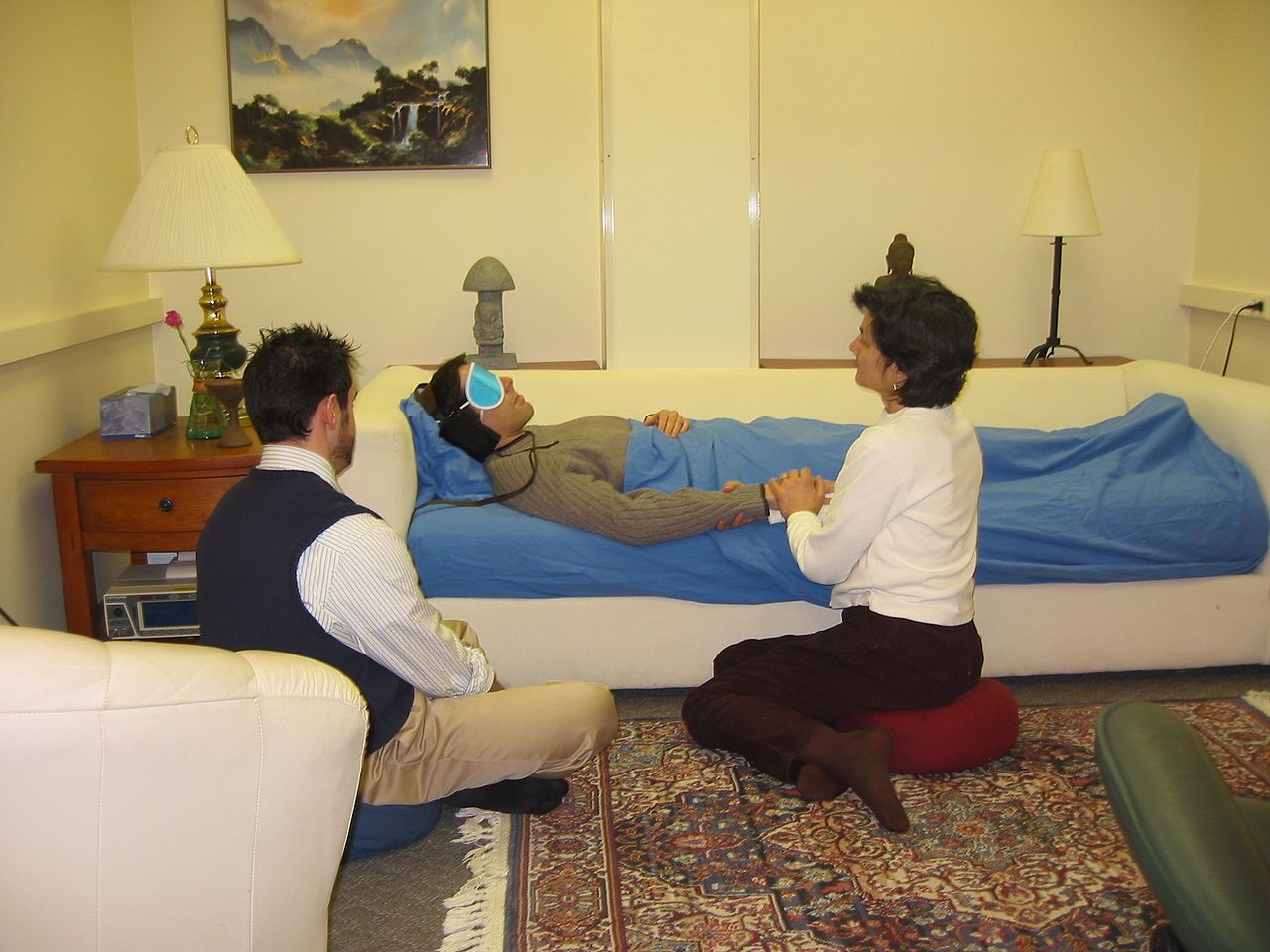





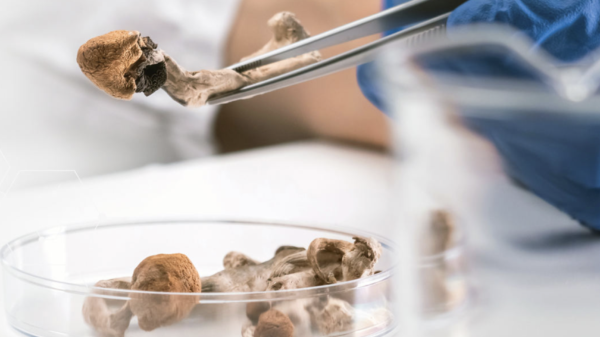



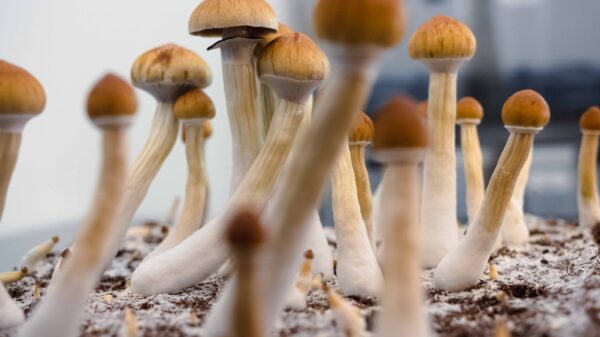

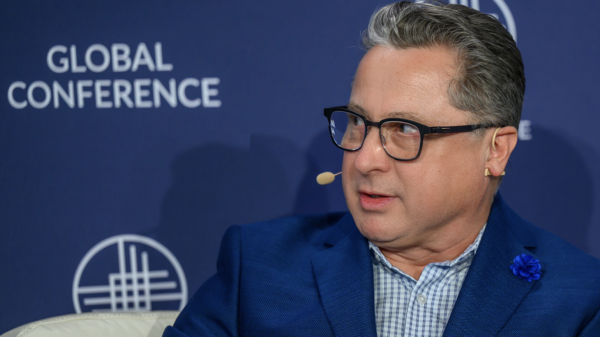

Noah Smith
August 24, 2020 at 7:41 pm
Mushrooms have helped me in shifting perspectives and focusing more outside me, renewing empathy and the desire to connect with others instead of withdrawing inside and getting overwhelmed with depression and chronic pain. While it hasn’t eliminated either, both are much more bearable.
Deborah Smith
August 25, 2020 at 7:53 am
It is nice to have people who exert efforts in decriminalizing this magic mushrooms, meaning, many people are interested and already discovered the good side and benefits of this magic mushrooms. And that is good because this might be the answer or cure for mental illness like anxiety and severe depression.